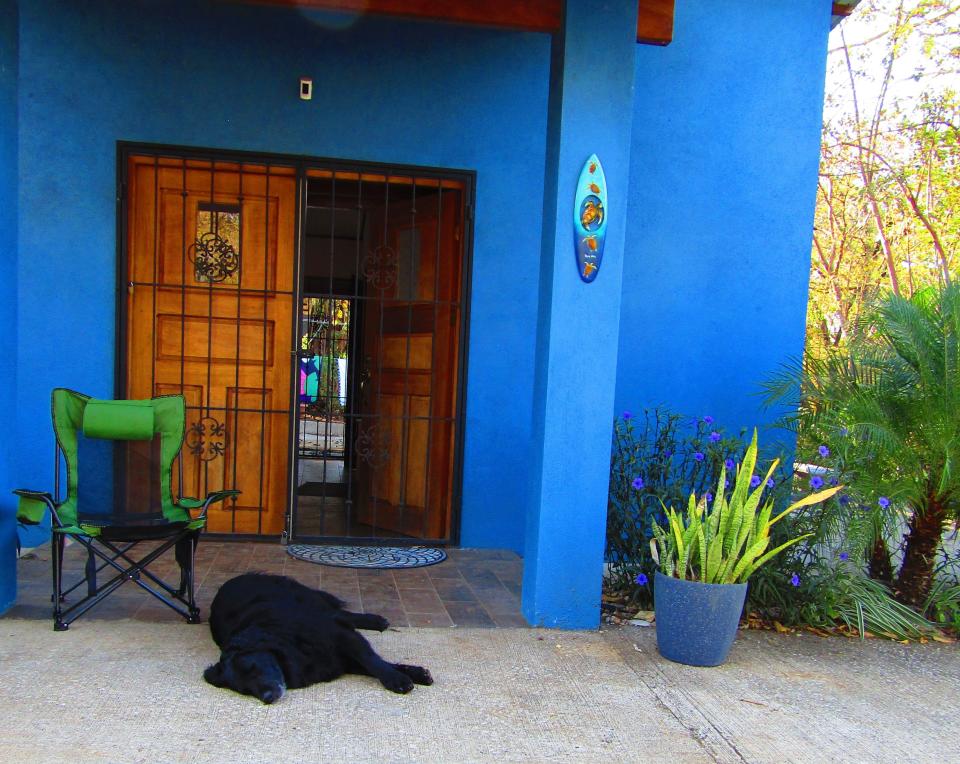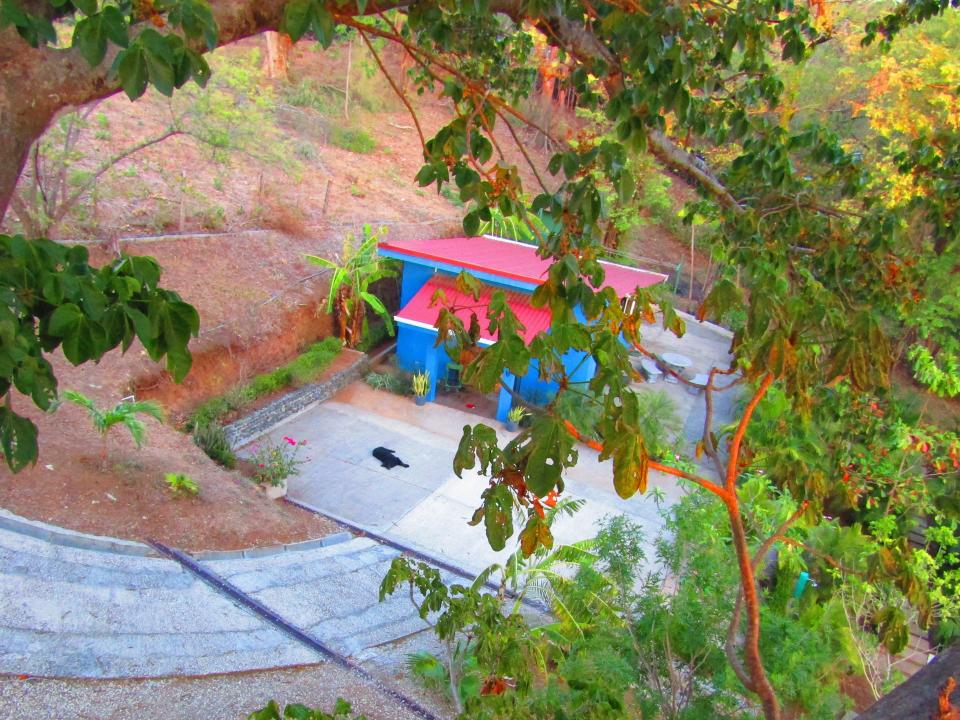A boomer who struggled to afford retirement in the US moved to Costa Rica and said money is much less of a concern
Cheryl Sands moved from Illinois to Costa Rica, fearing retirement costs in the US.
As costs rose, she struggled to live on her pension and Social Security despite working two jobs.
Many Americans are relocating to Latin America for cheaper living and better quality of life.
Cheryl Sands, 69, had worked two jobs at a time for much of her life, but after seeing her two older siblings work into their 70s and 80s to afford daily costs, she knew it was time to move from Illinois — and the US.
She feared her teaching pension and Social Security wouldn't be enough to live on without continuing to work. She had saved about $300,000, but into her 60s, she had two jobs to keep her savings stable.
She looked to Costa Rica as an option, having visited a few times prior, and she knew the cost of living was cheaper and life was calmer. She moved earlier this year and has loved it since.
"What I love about Costa Rica is the freedom, work ethic, value of learning and education, taking responsibility for their and their children's actions and accepting the consequences of their actions, pride in what they have, even if it's not much, respect for others, positive attitudes, and valuing children and the elderly," Sands said.

Sands is one of many Americans who moved to Latin America for their retirement. Some recently told Business Insider they were scared they wouldn't have enough money for a comfortable retirement in the US and thought living in Latin America would be cheaper. Others said they found new income opportunities that were much more relaxed than in the US.
Life in the US got more expensive
Sands lived in northern Illinois for much of her life. At one point, she described herself as a "professional student" who accumulated various degrees but did not know what to do with them. She worked odd jobs until she was 35. Eventually, she became a chemistry teacher in Aurora, about 40 miles from Chicago.
She taught for over 20 years, and in 2007, she quit her job and put her house up for sale. She assumed that the equity on her home would be her savings for another house, but she said it lost a lot of value amid the 2008 housing crisis.
She moved to the Illinois-Kentucky border and bought a cheap house on 10 acres in Shawnee National Forest. She said the home was "deserted and isolated," and she enjoyed living in peaceful nature.
Sands received a pension from teaching, but it wasn't enough for her to live on. She worked as a substitute teacher and installed barbed wire and chain link fencing on properties in the area to help pay her bills. She said people in her area were shocked because she held two jobs even in retirement. Her 82-year-old sister and 78-year-old brother still work as well.
Sands increasingly felt out of place. She was 25 miles from the closest town, meaning going to medical appointments was a growing hassle, and taking care of her property was more challenging and expensive.
Between her Social Security and pension, she earned $30,000 a year, not nearly enough to enter an assisted living or retirement community. Her property taxes increased 165% in one year, and the cost of deliveries from stores like Walmart also spiked.
Though she had a comfortable home, she worried she wouldn't have enough money to live without constantly worrying or working two jobs. She considered moving to a more urban area but couldn't imagine paying more for a much smaller home.
"I did not see myself being able to go anywhere, and I could see myself having to fall into the public support sector after not too long because I would not have any money," Sands said.
Moving to Costa Rica
She remembered a trip to Costa Rica in 1995 and visited in 2022 and 2023 to see if escaping retirement in the US by living there was viable.
"Last fall, I sold my house, sold all my belongings, packed up my two 90-pound dogs, packed as much as I could fit in carpet bags and suitcases, and left," Sands said.
She moved to a condo in the Guanacaste region in northwest Costa Rica earlier this year. Within three weeks, she realized it wasn't big enough for her dogs, so she searched for another rental property. She chose not to buy a home as she's still waiting on her pensioner visa.
She rented another home for $1,100 a month, a one-bedroom house a short walk from the beach. Her home is in Junquillal, a town between Santa Cruz and Tamarindo.

She has a 30-foot treehouse with views of the ocean and mountains. Her property is surrounded by trees, and she has a large front yard for her dogs. Her home has reliable internet and electricity, which are included in her rent.
Sands said nearly everyone she's met has been very friendly, and she hasn't had much of an issue with the language barrier. Many residents speak some English, and she's learning Spanish to feel more at home. Still, she said many people think she's wealthy because she's from the US.
"It's incomprehensible that with the money I had, I didn't have enough money to live where I lived, and I came here because it's less expensive," Sands said. "I feel more welcomed here than I did in Southern Illinois."
She said the cost of food is much lower than the US, though portion sizes for packaged goods are smaller. She's valued the wide selection of fresh produce and fish, though the stores in her small town don't have everything she needs. Dairy products are also rather expensive, she's noticed.
The closest city is about a half-hour drive, which is $50-$75 each way via taxi. She doesn't need to worry about owning a car as she said vehicles are a luxury and "for the very brave."
While the cost of living is much lower in Costa Rica, the exchange rate between the US dollar and Costa Rican colón has worsened, meaning prices in Costa Rica have recently shot up. Her Walmart bill, for example, increased by at least a third in just a month.
Still, she's not too stressed about money anymore. She wakes up at 5:30 a.m. each morning, takes her dogs for a walk, swims for a few hours, does household chores, and reads — which she acknowledges she rarely had time for as a teacher.
"It doesn't sound like much, but my days are full," she said. "If I were back in the US, I would have to be worrying about weeding my flower beds, mowing the lawn, and chainsawing trees."
She's considered making some extra income by purchasing homes and converting them into rental properties for tourists. She also wants to move into a permanent home by August and continue learning about the local culture.
"I do attempt to plan for future financial expenses to avoid not having any money, but I don't obsess over it because life often changes things in ways you would not ever plan for," Sands said.
Have you recently left the United States for a new country? Reach out to this reporter at nsheidlower@businessinsider.com.
Read the original article on Business Insider


